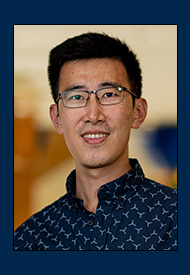Team
Leadership
V eera Baladandayuthapani, PhD
eera Baladandayuthapani, PhD
Director, Cancer Data Science Shared Resource
Chair, Department of Biostatistics
Dr. Veera Baladandayuthapani is the chair of the Department of Biostatistics, and a professor in the Department of Computational Medicine and Bioinformatics (joint) at University of Michigan (UM) and serves as the Director of the Cancer Data Science Shared Resource. He joined UM in Fall 2018 after spending 13 years in the Department of Biostatistics at University of Texas MD Anderson Cancer Center, Houston, Texas, where he was a Professor and Institute Faculty Scholar and held adjunct appointments at Rice University, Texas A&M University and UT School of Public Health. His research program explores the potential of Bayesian probabilistic models and machine learning methods to assist in medical and health sciences. These methods are motivated by large and complex datasets such as high-throughput genomics, epigenomics, transcriptomics and proteomics as well as high-resolution neuro- and cancer- imaging. A special focus is on developing integrative models combining different sources of data for biomarker discovery and clinical prediction to aid precision/translational medicine. He currently holds multiple PI-level grants from NIH and NSF to develop innovative and advanced biostatistical and bioinformatics methods and software tools for processing and multi-platform integration of genomics and proteomics data. He has extensively collaborated with numerous clinical and basic science investigators at UM and MD Anderson. These collaborations have included designing numerous clinical trials, as well as collaborating on projects involving biomarker discovery, preclinical, and retrospective and prospective clinical studies, some involving complex, high-dimensional genomics data. He has also served as the Director of the Biostatistics and Bioinformatics Cores for the Specialized Programs of Research Excellence (SPOREs) in Multiple Myeloma and Lung Cancer and Biostatistics & Bioinformatics platform leader for the Myeloma and Melanoma Moonshot Programs at MD Anderson. He is a fellow of the American Statistical Association and an elected member of the International Statistical Institute.
Gen Li, PhD
Assistant Co-Director, Cancer Data Science Shared Resource, Bioinformatics and Laboratory
Sciences
Associate Professor, Department of Biostatistics
Website
Google Scholar Profile
PubMed
Contact
Dr. Gen Li is interested in developing cutting-edge statistical methods for complex biomedical data, such as high dimensional data, multi-way tensor array data, and multi-view multi-type data. His work is primarily motivated by research questions arising in genomics, microbiome, and multi-omics studies. His methodological research focuses on dimension reduction, predictive modeling, network analysis, and data integration. Dr. Li's research has been recognized by several awards and supported by multiple NIH grants.
 Menggang Yu, PhD
Menggang Yu, PhD
Assistant Co-Director, Cancer Data Science Shared Resource, Population and Clinical
Sciences
Professor, Department of Biostatistics
Website
Google Scholar Profile
PubMed
Contact
Before I transferred to the University of Michigan (UM), I was a Professor in the Department of Biostatistics and Medical Informatics (BMI) at the University of Wisconsin (UW). I served as the Biostatistics Shared Resource faculty director for the UW Carbone Cancer Center (UWCCC). I also was the biostatistics and bioinformatics core director for the UW Head and Neck Cancer SPORE and the co-director for the UW prostate cancer SPORE. My methodological research interests include clinical biostatistics, observational study, risk prediction, and causal inference.
 Erik Roys, MS
Erik Roys, MS
Program Manager, Cancer Data Science Shared Resource
Erik is the program manager for Cancer Data Science Shared Resource (CDS-SR), as of June 2024. He has a master’s degree in clinical research design and statistical analysis (CRDSA) from the University of Michigan School of Public Health OJ/OC program from 2005. He has been involved in statistical analysis and reporting related to the evaluation of healthcare providers (hospitals, dialysis facilities, and transplant centers) throughout his career, assessing quality improvement, provider safety, infection prevention, disease surveillance, and clinical performance measurement.
Collaborative Faculty
 Mousumi Banerjee, PhD
Mousumi Banerjee, PhD
Anant M. Kshirsagar Collegiate Research Professor, Department of Biostatistics
Director of Biostatistics, Center for Healthcare Outcomes & Policy
Dr. Banerjee is Anant M. Kshirsagar Collegiate Research Professor in the Department of Biostatistics in the School of Public Health. She has been a member of the Cancer Center since 2003. Dr. Banerjee's methodological research focuses on machine learning, correlated data, survival analysis, and competing risks, with applications to cancer control and population sciences. She studies fundamental issues related to cancer care delivery and outcomes in the population, using national registries such as the SEER and National Cancer Database (NCDB), claims data such as Medicare and Optum, and linked SEER-Medicare data. She has served and continues to serve on the Rogel Cancer Center’s Protocol Review Committee for numerous years. Dr. Banerjee is a Fellow of the American Statistical Association, and an elected member of the International Statistical Institute.
 Philip S. Boonstra, PhD
Philip S. Boonstra, PhD
Associate Professor, Department of Biostatistics
Dr. Phil Boonstra is an Associate Professor in the Department of Biostatistics at the School of Public Health and has been a faculty member there in the since 2013. He is a member of the Rogel Cancer Center's Protocol Review Committee.
 David Alan Hanauer, MD
David Alan Hanauer, MD
Associate Professor, Michigan Medical School
Dr. Hanauer is currently a clinical associate professor at the University of Michigan Medical School with a joint appointment in the School of Information. He is a practicing pediatrician and serves as Assistant Director for Clinical Informatics in the Rogel Cancer Center's Informatics Core, as well as Associate Chief Medical Information Officer for the University of Michigan Health System. His academic interests include clinical and health informatics initiatives primarily focused on the secondary use of clinical data and the interface between patients and the health care system
 Nicholas Henderson, PhD
Nicholas Henderson, PhD
Assistant Professor, Department of Biostatistics
Nicholas Henderson is an Assistant Professor in the Department of Biostatistics. He received his PhD in Statistics from the University of Wisconsin – Madison in 2015. Prior to joining the University of Michigan, he completed a postdoctoral fellowship at the Sidney Kimmel Comprehensive Cancer Center at Johns Hopkins University. His primary research interests include hierarchical modeling, Bayesian nonparametric and machine learning methods, computational statistics,and developing statistical methods for better understanding treatment effect heterogeneity and for supporting individualized medicine.
 Hui Jiang, PhD
Hui Jiang, PhD
Professor, Department of Biostatistics
Hui Jiang is an Associate Professor in the Department of Biostatistics at University of Michigan. He received his Ph.D. in Computational and Mathematical Engineering from Stanford University in 2009. He received his B.S. and M.S. in Computer Science from Peking University. Before joining the University of Michigan in 2011, he was a postdoctoral scholar in the Department of Statistics and Genome Technology Center at Stanford University.
 Arvind Rao, PhD
Arvind Rao, PhD
Director, Bioinformatics
Associate Professor, Department of Computational Medicine
Associate Professor, Department of Biostatistics
Dr. Rao's graduate work in bioinformatics aimed to develop a framework that identifies tissue‐specific enhancers by integrating multi‐modal genomic (gene expression, methylation and interaction) data. As a postdoctoral fellow in Carnegie Mellon University, he obtained training in data mining methods for image analysis. Previously, at the MD Anderson Cancer Center, he developed methods to analyze the relationship between image‐derived phenotypic attributes and genotypic attributes for cancer patients, focusing most of the work on datasets from the Cancer Genome Atlas (TCGA). Such image data is obtained from multiple modalities including, H&E whole slide data, immunohistochemistry, high-content microscopy, and radiology. At the University of Michigan, the primary focus of his group is to develop algorithms to quantify tumor phenotypes (from radiology, histopathology and microscopy data) and to relate those phenotypic aspects with genetic alterations like expression changes, mutation or copy number alterations. Further, they also develop methodologies (using statistical methods and machine learning) to integrate these diverse modalities (imaging, genomics etc.) to develop decision algorithms for prognosis and treatment selection. Looking forward, they are interested to develop analysis methodologies (based on spatial statistics, image analysis and machine learning) as well as tools for “spatial cancer systems biology” by leveraging spatial transcriptomics, spatial proteomics and multiplex imaging strategies of the tumr microenvironment to obtain a deeper characterization of regulatory networks underlying oncogenesis.
As part of community science initiatives, Dr Rao has been a participant in Analysis Working Groups (AWGs) for the Cancer Genome Atlas (TCGA) -- he has been privileged to contribute directly or indirectly to multiple TCGA manuscripts for multiple disease sites and the Pan-Cancer efforts (through bioinformatics analyses and creating bioinformatics infrastructure for work in batch effects, data integration, immune infiltration and regulatory program analyses). This community-wide effort, they believe, has strongly improved our understanding of the cancer genome and created many new exciting tools for cancer bioinformatics research.
 John Rice, PhD
John Rice, PhD
Research Assistant Professor, Department of Biostatistics
Dr. John Rice is a Research Assistant Professor in the Department of Biostatistics at the U-M School of Public Health. Prior to joining the University of Michigan as faculty, he completed a postdoctoral fellowship in the Department of Biostatistics and Computational Biology at the University of Rochester before joining the faculty in the Department of Biostatistics and Informatics in the Colorado School of Public Health at the University of Colorado - Anschutz Medical Campus in 2017. His methodological research is focused on missing and coarsened outcomes, longitudinal/correlated data analysis, and recurrent events.
 Matthew Schipper, PhD
Matthew Schipper, PhD
Research Professor, Department of Biostatistics
Research Associate Professor, Radiation Oncology
Dr. Schipper is a Professor of Biostatistics and Radiation Oncology. He received his PhD from the University of Michigan in 2006.
Cancer area of focus: Prostate, Lung, Liver, Head and Neck, Radiation Oncology, Biomarkers, Individualized and Adaptive Therapy.
Statistical Research Interest - Risk Prediction Models, Statistical Methods for Personalized Medicine, Early phase trial design.
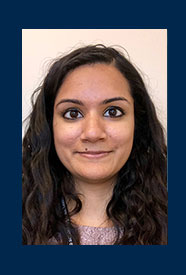 Krithika Suresh, PhD
Krithika Suresh, PhD
Research Assistant Professor, Department of Biostatistics
Research Assistant Professor, Department of Radiation Oncology
Dr. Krithika Suresh is a Research Assistant Professor in the Department of Radiation Oncology. She received her MMath in Biostatistics from the University of Waterloo, and her PhD in Biostatistics from the University of Michigan. Her research interests include survival analysis, longitudinal data, joint modeling, and prediction models, with applications in cancer research and other health outcomes.
 Jeremy Taylor, PhD
Jeremy Taylor, PhD
Professor, Department of Biostatistics
Pharmacia Research Professor, Department of Biostatistics
Professor, Department of Radiation Oncology
Professor, Department of Computational Medicine and Bioinformatics
Jeremy M G Taylor PhD is the Pharmacia Professor of Biostatistics at the University of Michigan. He obtained a Bachelor’s degree in Mathematics and a Diploma in Statistics from Cambridge University and a PhD in Statistics from University of California Berkeley. He was a faculty member in the Department of Biostatistics and the Department of Radiation Oncology at UCLA from 1983 to 1998. He is currently a faculty member in the Department of Biostatistics, the Department of Radiation Oncology and the Department of Computational Medicine and Bioinformatics and the Director of the Center for Cancer Biostatistics at the University of Michigan. He is the winner of the Michael Fry award from the Radiation Research Society, the Mortimer Spiegelman award from the American Public Health Association and the Jerome Sacks award from the National Institute of Statistical Science. He is a former Chair of the Biometrics section of the American Statistical Association and a Fellow of the ASA. He is the former chair of the Biostatistical Methods and Research Design grant review committee for the National Institutes of Health. He was one of the coordinating editors of Biometrics from 2012-2014. He has over 370 publications and research interests in longitudinal and survival data, cure models, methods for missing data, causal inference, biomarkers, surrogate and auxiliary variables. He worked previously in AIDS research but currently mainly focusses on cancer research. He has served as the dissertation chair for 36 PhD students in Biostatistics at UCLA and the University of Michigan.
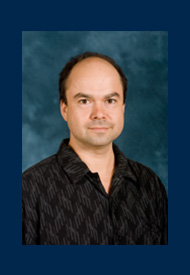 Alexander Tsodikov, PhD
Alexander Tsodikov, PhD
Professor, Department of Biostatistics
Dr. Alex Tsodikov is Professor of Biostatistics. He received his PhD in Applied Mathematics in 1991 from St. Petersburg State Technical University, Russia. Prior to joining University of Michigan, he has been a Postdoctoral Scholar at the Curie Institute (Paris, France), a staff statistician at the University of Leipzig (Germany), Research Assistant/Associate Professor at the University of Utah and Associate Professor/Professor at the University of California, Davis. Dr. Tsodikov's research interests are in various areas of biostatistics and biomathematics, including failure time and survival analysis models, cure models, semiparametric inference, stochastic models, optimal control, inference algorithms based on self-consistency.
Center Staff
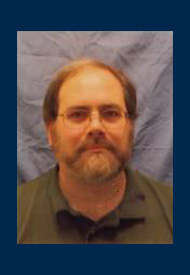 Paul Abrahamse, MS
Paul Abrahamse, MS
Statistician Lead, Department of Biostatistics
Paul Abrahamse's research interests include: outcomes research, cost-effectiveness/cost-benefit analyses.
 Karan Bedi, MS
Karan Bedi, MS
Bioinformatician/Computational Biologist intermediate
Karan is a bioinformatician in the Department of Biostatistics and has been associated with Michigan Medicine since 2014 as a computational biologist. Karan obtained his MS in Toxicology at the School of Public Health in 2012. He has extensive experience in analyzing transcriptomics data, with a focus on nascent RNA sequencing. Karan's research interests include RNA splicing and turnover, micro-RNA biogenesis and regulation, RNA processing and utilizing high throughput sequencing technologies in cancer therapeutics.
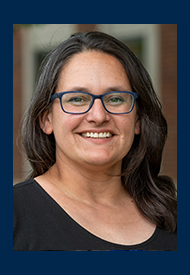 Emily Bellile, MS
Emily Bellile, MS
Statistician Lead
Emily has been with the Biostatistics unit since 2009, and has experience with clinical trial planning/analysis, tissue microarray, and retrospective analyses.
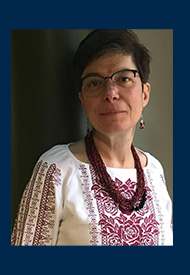 Irina Bondarenko, MS
Irina Bondarenko, MS
Statistician Senior, Department of Biostatistics
Cancer area of focus: Quality of life, socio-physiological effect of treatment, genetic testing and its effect on treatment decisions.
 Allison Furgal, PhD
Allison Furgal, PhD
Allison joined the shared resource in 2022. She received her PhD in Biostatistics from the University of Michigan in 2021 and wrote her thesis on joint models for longitudinal and multistate survival data. She also obtained a BS in Mathematics and Computer Science from the University of Detroit Mercy in 2011, a MA in Mathematics from Wayne State University in 2013, and a MS in Biostatistics from the University of Michigan in 2015. Her research interests include surveillance and outcomes research and treatment decisions.
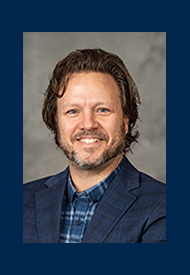 Kent Griffith, MPH, MS
Kent Griffith, MPH, MS
Statistician Expert, Department of Biostatistics
Kent joined the shared resource in 2000 and has extensive experience designing phase 1 and 2 clinical trials, observational research methods (propensity methods and 'virtual-twins'), quality improvement research, and has a deep understanding of breast cancer, multiple myeloma, billiary tract and pancreatic cancer. He is the lead statistician for the Michigan Radiation Oncology Quality Consortium's breast cancer and bone metastasis projects. He has published over 175 peer-reviewed articles. Kent is the father of three grown children and resident of Ann Arbor.
 Nicholas Lesniak, PhD
Nicholas Lesniak, PhD
Bioinformatician/Computational Biologist Intermediate
Nick joined the Biostatistics department in 2023. He obtained his PhD in Microbiology and Immunology from the University of Michigan in 2022. The subject of his thesis focused on the role the gut microbiome plays in the development and resistance of disease. Nick's research interests are leveraging multi-omics analyses to elucidate mechanisms of disease and identify potential therapeutic applications.
 Chamila Perera, PhD
Chamila Perera, PhD
Statistician Senior
Chamila graduated from Texas Tech University in August 2019 with a PhD in Mathematics (Concentration on Statistics). Prior to her training in the USA, she graduated from University of Kelaniya, Sri Lanka with a Bachelor’s in Statistics and Computer Science in 2009. She worked as a postdoctoral research associate in the Division of Biostatistics at Washington University in St. Louis.
 Stephanie The, MS
Stephanie The, MS
Bioinformatician/Computational Biologist Associate, Department of Biostatistics
Stephanie analyzes high-throughput sequencing techniques, mainly bulk and single-cell RNA and epigenetic sequencing.

